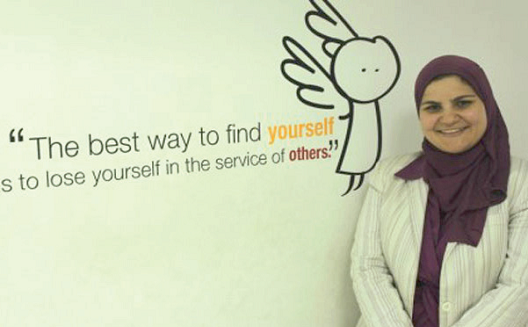Defining social entrepreneurship: Alashanek ya Balady in Egypt [Case Study]
![Defining social entrepreneurship: Alashanek ya Balady in Egypt [Case Study]](https://cdn.wamda.com/feature-images/095fb2b822f8826.png)

Continuing our new case study series, in partnership with the El Khazindar Business Research and Case Center (KCC) at the American University in Cairo's School of Business, and Aramex, Wamda is featuring an in-depth look at 12 leading startups, that hail from Egypt, Jordan, the UAE, Palestine, and Lebanon, revealing their stories of origin, major challenges, and future plans.
The second in the series is social entrepreneurship support organization Alashanek ya Balady Association for Sustainable Development (AYB-SD). AYB-SD follows a unique model for social entrepreneurship, offering an economic development strategy for the poor while ensuring each organization they work with reaches financial sustainability.
This case study also reveals AYB-SD’s definition of social entrepreneurship, and examines some of Egypt’s most pressing poverty issues.
“I came to understand that teaching children Arabic and math won’t put an end to child labor, and providing soft skills training to poor youth won’t necessarily guarantee them a decent job in Egypt, both due to stereotyping and labor issues. If I wanted to solve the problem of unemployment, I realized, I would have to address the structural problems in the market,” says founder Raghda El Ebrashi.
First established as a student club at the American University of Cairo in 2002, when El Ebrashi was 17, AYB-SD was later registered as an NGO in 2005. IT now operates in ten governorates across Egypt and has franchised its student club to over 14 universities in Egypt.
The study notes that around 90% of those who are unemployed in Egypt are between 18-29 years old, so AYB-SD focuses primarily on the unemployed with an intermediate level of education, due to their large share of unemployment in Egypt and the low market demand for their contributions to the labor force. AYB-SD has designed custom trainings to help their target with career guidance and coaching, specialized training curricula, and follow-up as they progress in a new job.
But AYB-SD still faces some major challenges, namely with the public sector. They are advocating for the government to help low-income Egyptians by instituting a minimum wage law, yet the public sector itself has huge amounts of red tape and offers notoriously low salaries for its own employees. It’s an uphill climb, but El Ebrashi is optimistic that the AYB-SD team can make a real difference.
Check out the full case study in the grey box to the right to learn more about Alashanek ya Balady’s story.


